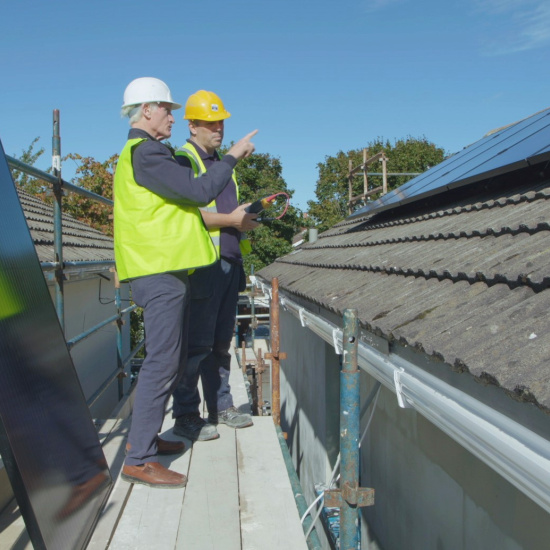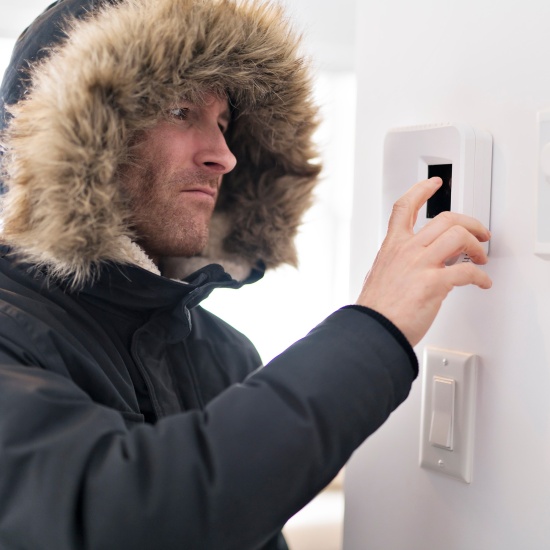Switch to clean, renewable energy with a heat pump
It's time to give your home an energy upgrade and switch to clean, renewable energy with a heat pump.
Roughly half of Irish homes have a BER rating of D or below, meaning that lots of Irish homeowners are currently losing out on both comfort and energy savings. This means you could dramatically increase the comfort and value of your home by upgrading your insulation and switching to renewable heating systems.
Turn your back on fossil fuels
Now is a great time to improve your home comfort with insulation upgrades and get your home ready for the clean switch to a heat pump. Our homes are big users of fossil fuels resulting in a lot of harmful emissions. We can turn our backs on fossil fuels if our homes are more efficient and use more renewable energy. More and more people are aware of the benefits of home energy upgrades, with attic and wall insulation a common starting point. Investing in home energy upgrades and a heat pump system, creates a more comfortable and healthier home. And when you lower your energy use, you lower your energy bills, which is important when energy prices are so volatile. You can also view these upgrades as long-term investments that will significantly improve the value of your home. Best of all, there are significant Government grants available for upgrades such as insulation, heat pumps, solar panels, and, in certain instances, windows.
Choose the best heating system - a heat pump
Many people only think of replacing their heating system when their current one breaks. This then becomes a grudge purchase, a panic buy. You can avoid this with proper planning. If you have an old gas or oil boiler, say 10 years or older, that will soon need replacing, now is the time to investigate how to make the switch to a heat pump. A heat pump is one of the best heating systems out there today. It's the most energy efficient way to heat your home. Your home will be warmer and healthier with a constant, comfortable temperature throughout the year. Even better, as you are using electricity, which is increasingly renewably sourced, you are reducing your carbon footprint.
Although heat pumps work very well with underfloor heating, you don't have to install underfloor heating for a heat pump to work. Heat pumps work just as well with traditional radiator systems. You just may need to increase the size of some radiators, because heat pumps work at a lower temperature.
Grants to help you invest
Understandably, costs tend to be a big concern for many. Like with any home improvements, home energy upgrades require up-front investment. But rather than pouring your hard-earned money into burning fossil fuels in a poorly insulated home, why not improve the energy efficiency of your home and create a healthier living environment, while at the same time, reducing your carbon footprint. With heat pumps becoming increasingly popular as the home heating system choice of the future, there are a lot more options on the market to suit different home sizes. This includes heat pumps for apartments.
SEAI offers home energy upgrade grant options to match your budget and needs. Whether you choose to carry out a complete home energy upgrade through SEAI's One Stop Shop service, or carry out individual energy upgrades over time, both options offer significant Government grants. You can get a grant of up to €10,500 for a heat pump system via a One Stop Shop and insulation grants of up to €8,000 are available depending on your home and what needs to be done.
Isn't it time you had a more comfortable, economical, and cleaner home.
You can find further information about SEAI Home Energy Upgrade grants on our website.
SEAI Home Energy Upgrade Grants



